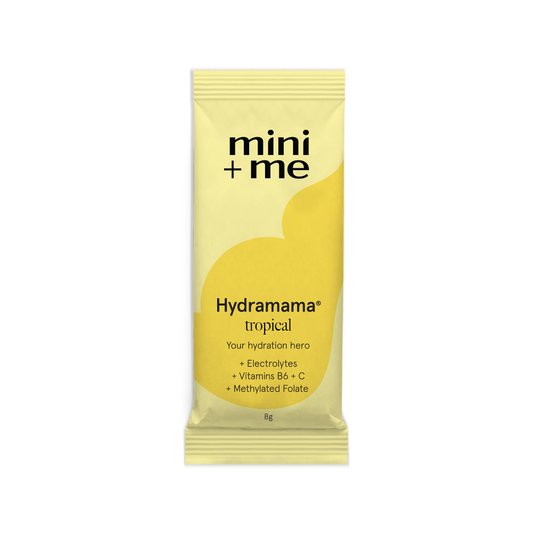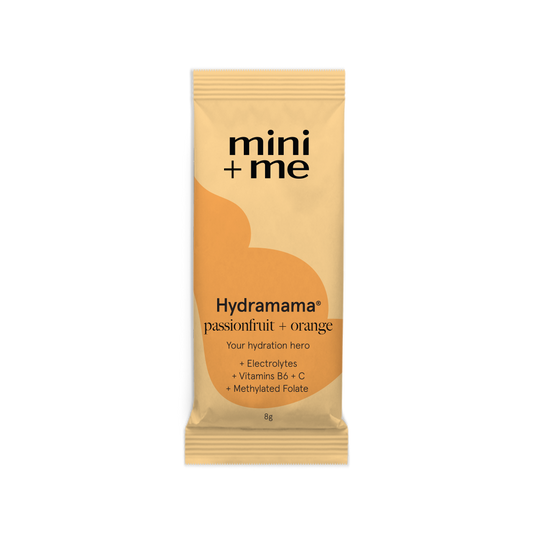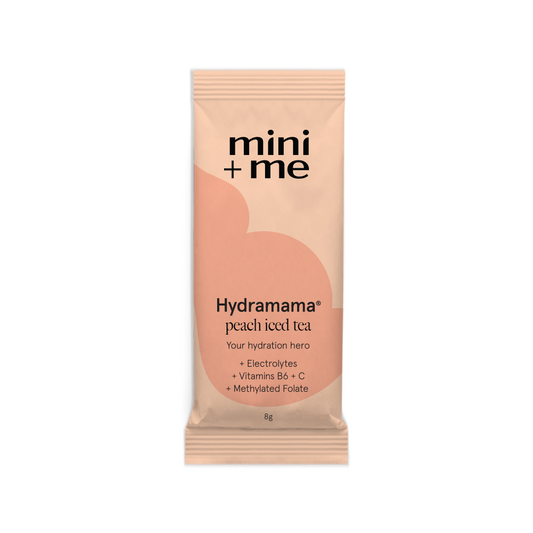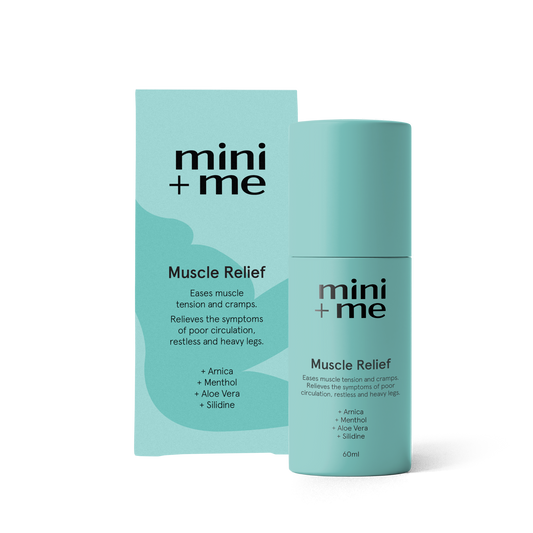As you navigate the journey of pregnancy, birth and new parenthood, your body is constantly adjusting along the way. It's not uncommon to experience some discomfort throughout each stage of pregnancy, from muscle cramps and restless nights, to nutritional deficits, fatigue and aches and pains, pregnancy and postpartum can be a challenge for many.
Magnesium can play a pivotal role in assisting with some of these common concerns to support you and your baby each step of the way. Magnesium plays a vital role in supporting maternal health during pregnancy and the postpartum period. Its benefits are endless, positively supporting everything from muscular function to mental wellbeing. Here’s some insight on how magnesium can support you and your baby throughout these critical phases, and why Hydramama is an excellent choice for expectant and new mothers.
Benefits of Magnesium in Pregnancy
Morning sickness and food aversions in early pregnancy often contribute to many women not consuming enough magnesium from their diet alone. The combination of a balanced diet (think leafy greens, salmon, nuts and legumes) and supplementation, like Hydramama, can help:
- Muscle Health: Magnesium helps alleviate common pregnancy symptoms such as cramps and muscular tension. By aiding in muscle relaxation, it can help prevent the occurrence of painful cramps that are occur during pregnancy.
- Mood Regulation: Fluctuating hormones during pregnancy can affect mood and overall mental health. Magnesium has been shown to play a role in combating depression and anxiety, which is crucial for maintaining maternal mental health.
- Blood Pressure Regulation: High blood pressure is a concern for many pregnant women, particularly those facing the risk of pre-eclampsia. Magnesium helps to naturally dilate blood vessels, promoting better blood circulation and maintaining healthy blood pressure levels.
- Bone Health: It contributes to the regulation of calcium levels within the body, which is crucial for both fetal bone development and the preservation of maternal bone density.
- Sleep Improvement: Quality sleep can be hard to come by during pregnancy and the postpartum period due to physical discomfort and baby care schedules. Magnesium can improve sleep quality by regulating neurotransmitters involved in the sleep cycle.
Why Hydramama is an Ideal Magnesium Drink
Optimal Dosage: Each serving of Hydramama contains 80mg of magnesium, which is a thoughtful, safe amount designed to supplement a typical diet without exceeding recommended daily limits. This dosage supports the daily requirements for pregnant and breastfeeding women.
Fast Absorption: Hydramama is formulated to be easily absorbed by the body. This means the magnesium it provides is readily available for use, ensuring that mothers receive its benefits more quickly and efficiently.
Gentle on the Stomach: During pregnancy and postpartum, many women experience heightened stomach sensitivity. The form of magnesium in Hydramama is chosen for its digestibility and gentleness, minimizing the likelihood of gastrointestinal discomfort.
Comprehensive Hydration: Beyond just magnesium, Hydramama includes a balance of electrolytes and essential nutrients, ensuring comprehensive hydration which is crucial during these demanding times.
Magnesium plays several crucial roles in postpartum recovery and breastfeeding, making it a vital nutrient for new mothers. Here’s why magnesium is especially important during this period:
Postpartum Recovery
As you become a new mother, so much is shifting - physically, mentally and emotionally. As your body heals and regains its strength, this period can often bring different challenges for women. Magnesium helps:
- Mood Regulation: The postpartum period can often bring mood fluctuations and, in more severe cases, postpartum depression. Magnesium has been shown to help stabilize mood by supporting the function of neurotransmitters in the brain. Its calming effect on the nervous system can be a significant aid in managing anxiety and depression.
- Sleep Quality: Quality sleep is often hard to come by for new mothers. Magnesium can improve sleep by regulating the production of melatonin, the hormone responsible for guiding sleep-wake cycles. It also helps activate the parasympathetic nervous system, which is necessary for relaxation and restful sleep.
- Muscle Recovery: After childbirth, the body needs to heal and regain strength. Magnesium aids in muscle repair and function. It helps to relieve muscle aches and spasms, which are common in the postpartum period due to physical stress from childbirth.
Breastfeeding
Magnesium doesn't directly increase your milk supply, but it definitely supports breastfeeding. It’s the perfect mineral to help relax our bodies, thus decreasing overall tension during feeds - helping that milk flow.
- Milk Production: While direct studies linking magnesium to increased milk production are limited, magnesium does support several bodily functions that indirectly benefit lactation, such as ensuring proper blood flow and regulating hormones.
- Bone Health: Breastfeeding can deplete the mother’s store of essential nutrients, including calcium. Magnesium is critical for calcium absorption and bone health. Maintaining adequate magnesium levels helps prevent long-term bone density loss in nursing mothers.
- Stress and Fatigue Reduction: The demands of breastfeeding can be physically and emotionally taxing. Magnesium helps reduce physical and mental fatigue by supporting energy production. This energy boost is crucial for mothers coping with the demands of breastfeeding a newborn.
General Wellbeing
-
Electrolyte Balance: Magnesium is one of several electrolytes in the body that help maintain fluid balance, which is crucial for overall cellular function. Proper electrolyte levels are essential for both the health of the mother and the effective production of breast milk.
- Nervous System Support: Magnesium plays a role in nerve impulse conduction, muscle contraction, and normal heart rhythm; all critical aspects of a healthy body. Its support for nerve function can also enhance sensory processing, helping mothers be more attuned to their baby’s needs.
Cart is Empty
Your Cart is Empty
- Choosing a selection results in a full page refresh.
- Opens in a new window.










